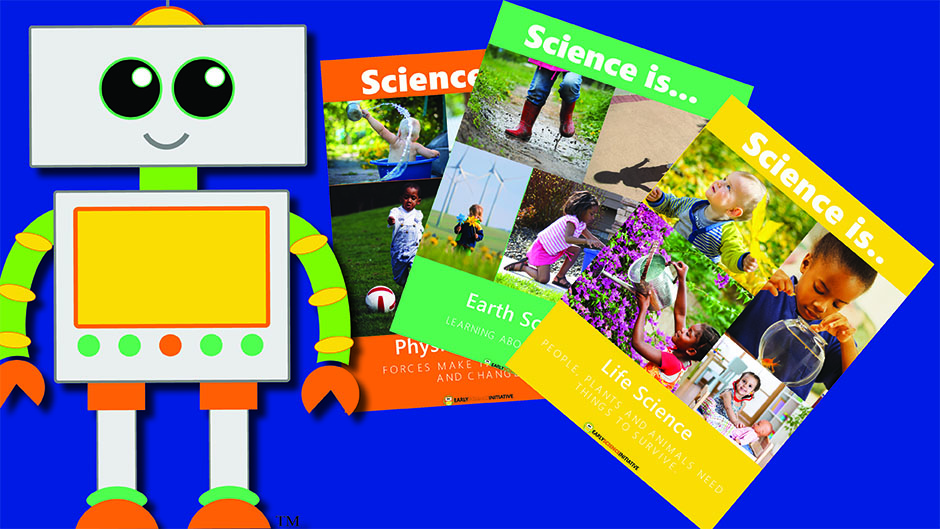Children are natural explorers, both curious and motived to discover the world around them. Research shows that humans learn best when physically, mentally, and collaboratively engaged in goal-directed learning experiences. Placing science at the core of early learning embodies these learning principles and helps young children develop critical thinking and language skills, math comprehension, and social and emotional skills in a context that is social, meaningful, and relevant to them.
Hands-on and minds-on exploration and investigation in the service of early childhood learning are at the heart of the Early Science Initiative (ESI), a foundational support system for children, families, teachers, and leaders that promotes learning through science.
Lead by Daryl Greenfield, a professor of psychology and pediatrics at the College of Arts and Sciences, ESI creates comprehensive learning materials, guides, and face-to-face online and technology-based training methods to assist families and teachers with the tools they need to effectively and intentionally support the natural, goal-directed motivation of infants, toddlers, and preschoolers to discover and understand the world around them.
“Young children are primed to engage in the behaviors of scientists: observing, asking questions, making predictions, and planning and carrying out investigations to learn fundamental concepts such as cause and effect, structure and function, and patterns,” said Greenfield. “This hands-on learning occurs in an engaging, goal-directed social context on topics in Life Science about animals, plants, and their own growth and development; in Physical Science, investigating what’s hard, soft, bounces, rolls, sinks or floats; and in Earth & Space Science, exploring water, dirt, rocks, weather, and wondering about the sun, clouds, moon, and stars.”
Funding and support for ESI are backed by Acceleration grants from the Buffet Early Childhood Fund (BECF) and a second foundation that makes grants to support and nurture high-quality teaching and learning in early childhood settings. Eva Roberts, director of strategic initiatives for BECF, says the Acceleration grants were launched in 2015 “to promote innovation and harness the collective energy and talent that exists at every level across the Educare Learning Network.”
According to Roberts, the Educare Learning Network (ELN) is one of BECF’s largest investments featuring 25 early learning schools across the U.S. that collaborate and work with philanthropic partners, advocates, and researchers to create and share best practices with the broader early childhood field.
“Five years into these projects, we are delighted by the ideas, solutions, and products that are emerging from these partnerships and frequently cite the Early Science Initiative as a standout due to the strong leadership by Dr. Greenfield and his team and the quality of the project materials,” said Roberts. “The Early Science Initiative is the result of what happens when researchers, teachers, and families work together to develop solutions for young children and the adults in their lives.”
Greenfield is hoping continued support and collaborations resume that will advance ESI and its mission to transform young minds through scientific exploration and development. His long-term vision is to establish an ESI institute at the University of Miami that focuses solely on early childhood learning through program development and transformative initiatives for children, adults, and educators.
“The content of children’s interest, curiosity, and goal-directed behavior is fundamental within the topics of science, and we want children to learn by doing and investigating and solving problems, setting them on a strong foundation for life-long learning,” said Greenfield.
For more information about ESI, visit https://www.schoolreadinesslab.org/learnandplay and the Facebook page, https://www.facebook.com/TheEarlyScienceInitiative/ or send an email to: earlyscienceinitiative@miami.edu.

